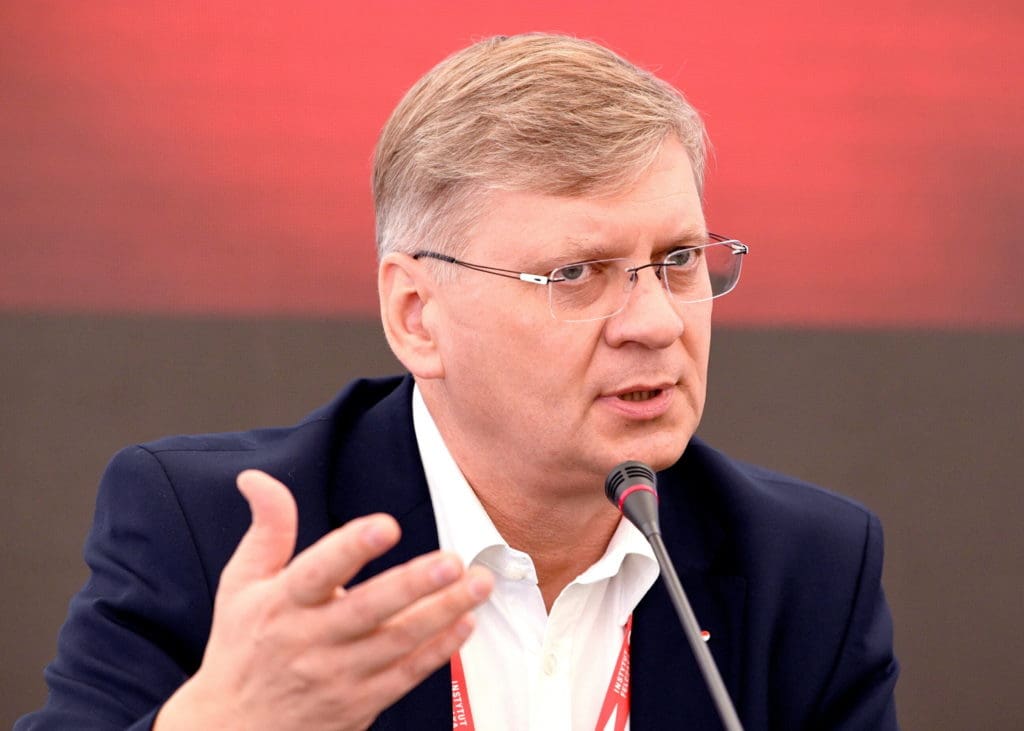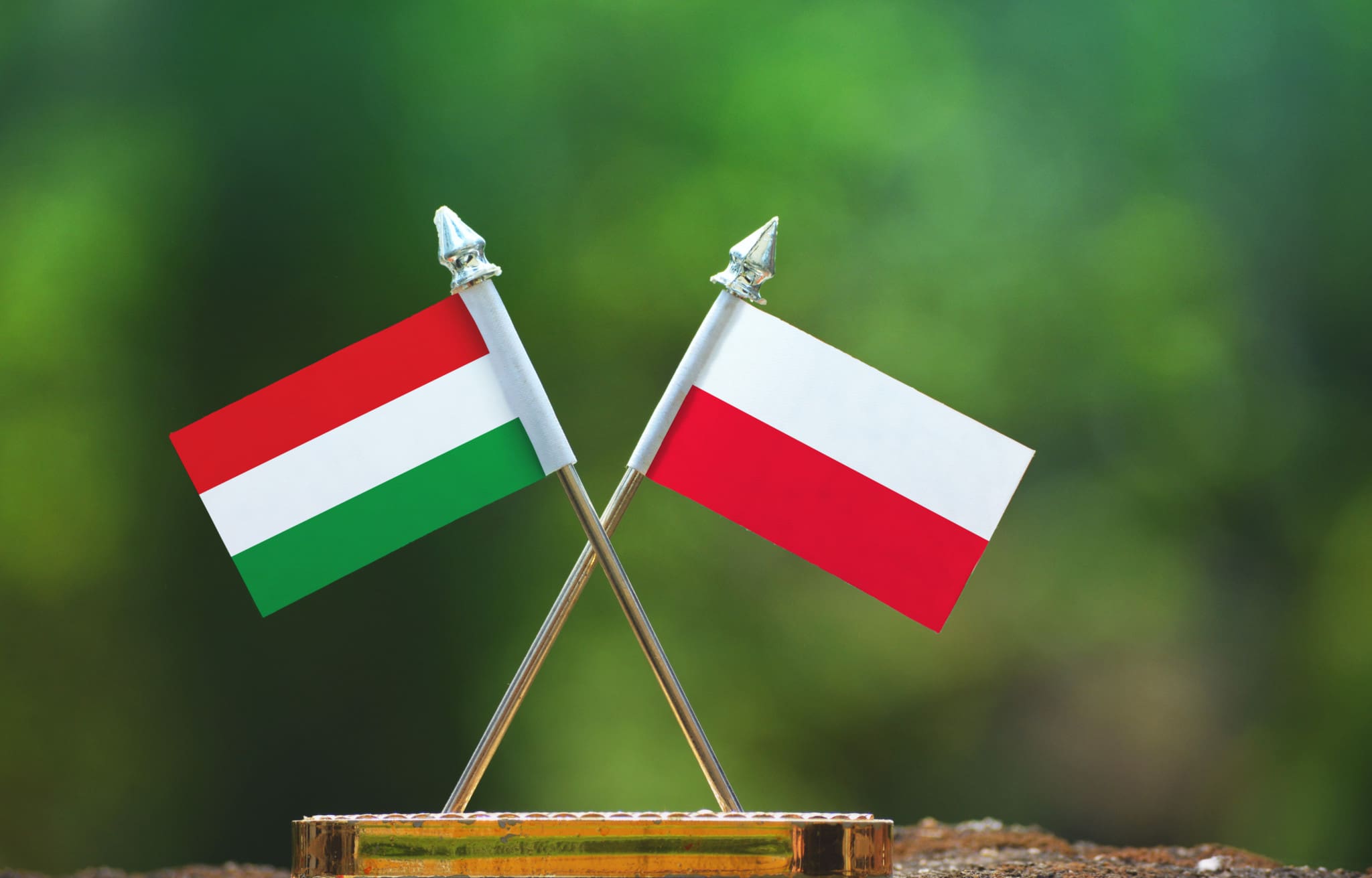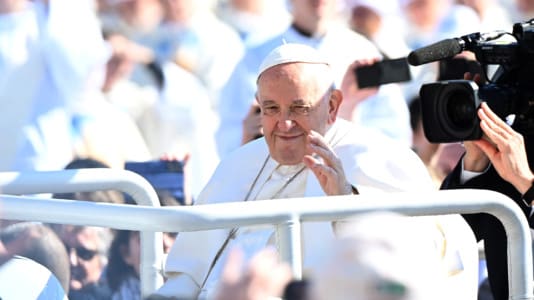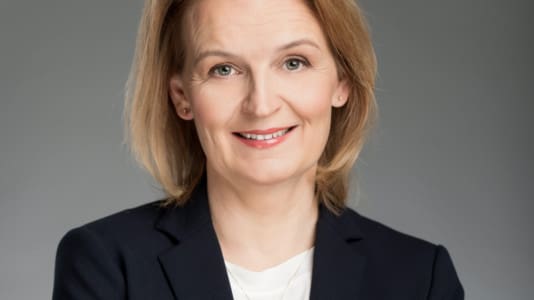On April 18, the Wacław Felczak Institute of Polish-Hungarian Cooperation held a conference on the need for V4 cooperation and joint defense of the region’s interests in relations with Brussels. Unfortunately, the topic was somewhat overshadowed by a discussion about the different approaches of Hungary, on the one hand, and the other three V4 countries, on the other, to the war unleashed by Russia in Ukraine. In your opinion, how deep are the real divisions within the V4 and how much is the media simply providing a distorted picture of them?
This is a question that is a bit complicated to answer.
First of all, it is no coincidence that the topic of the war in Ukraine and the Russian Federation’s assault on Ukraine comes up in every conversation, both in private and at the kind of meetings and conferences we have had the opportunity to organize. There is, of course, a lot of fear: the fear for our security, the fear that a new Iron Curtain is emerging — only it is not yet very clear where it will run, the fear of those societies, those nations that lie in Central Europe.
As for the Visegrád Group, its fortunes have fluctuated over time. Sometimes they were better, and sometimes worse. I think this is a community of interests, though. I remember a time, especially under Czech Prime Minister Vaclav Klaus and Czech Foreign Minister Zieleniec — who was interestingly of Polish origin — when the Visegrád Group did not function for a long time. So the V4 has had such experiences.
On the other hand, as was seen in recent years, there was a time when each of these countries was governed by coalitions that differed a lot — from an ideological and worldview perspective. We had Law and Justice in Poland, Fidesz in coalition with Christian Democrats in Hungary, liberals led by Babiš in the Czech Republic, and a leftist coalition in Slovakia led by Prime Minister Fico, who is likely to become prime minister again after the next elections in September. And despite these differences, the Visegrád Group was able to work together.

I think there is a belief — I have myself witnessed such conversations many times, whether I was talking to right-wing or left-wing politicians from V4 countries — that the success of one country also means the success of the other countries in this part of Europe, and vice-versa: The failure of some means sooner or later problems for the others.
So I am optimistic about the Visegrád Group, and certainly, we all have a strong interest in making it work together and gain momentum again. If only because we are facing some challenges regarding the European Union.
During the April 18 conference at the Wacław Felczak Institute in Warsaw, the results of a survey on mutual perceptions of Poles and Hungarians were presented. It is often said that inside the V4, Poland and Hungary are very fraternal nations and that they are essentially the driving force behind Central Europe’s regional integration. But those opinion polls conducted by Poland’s CBOS and Hungary’s Századvég Institute show that the percentage of Hungarians looking positively at Poland and Poles looking positively at Hungary has declined quite markedly over the past year since the start of the war in Ukraine, although they are still the majority. Doesn’t that worry you?
I will say frankly that I expected worse results. It may sound paradoxical, but I am even pleasantly surprised by these results. As for the survey, which was conducted by the Századvég think tank in Hungary, it was financed from Hungarian sources, and we, at the Felczak Institute, commissioned research on Polish opinion from the CBOS institute. For now, we have shown only part of the results of this research, and we will soon be disclosing other aspects of it, dealing in large part with the European Union and the views of Poles and Hungarians on the EU and on issues of EU centralization.
We already know from these surveys that there is a very large convergence of views between Poles and Hungarians in this regard, which may not have been apparent at this April 18 presentation. For both peoples, the European Union should remain a union of sovereign states, and certain issues, as enshrined in the treaties, should be outside the European Commission’s area of decision-making. In this area, we have a 70-80 percent convergence of views.
The same is true for topics related to faith and civilization issues, for example, when it comes to gender ideology. And this is a convergence not only between Poles and Hungarians, but also, surprisingly, with public opinion in France, Spain and even in Germany. It turns out that politicians often say things that differ from what most people think, and it is the voices of politicians that reach us more often.
I’ll give another example from a previous survey we did in the V4 countries: In Poland; there is a perception that the Czech Republic is one of the most secularized, atheistic societies in Europe or in the European Union. This survey showed that Czechs have a very strong attachment to fundamental rights, Christian values, and religious holidays, and at a level even higher than in Catholic Poland.
We live in the modern world, maybe not in a bubble but maybe something like a tunnel: We hear something different from what citizens of countries such as France, Germany or the Czech Republic admit to in sociological surveys.
You mentioned that after the September elections in Slovakia, a new government may be formed in Bratislava by former Prime Minister Robert Fico. Fico, like Viktor Orbán in Hungary, opposes sending weapons to Ukraine. Moreover, a majority of Slovaks do not support these arms deliveries to their eastern neighbor either. So could Slovakia go the way of Hungary in terms of its approach to the war in Ukraine?
It should first be made clear that most European Union countries assist Ukraine at a minimal or near-minimal level. This is not just the case of, for example, Hungary, Austria or Croatia, which refuse military aid. I agree with your opinion that Slovakia will most likely stop supplying weapons.
At least as a country, since we see what is happening in Bulgaria, for example, where the government says one thing and Bulgarian arms companies nevertheless supply Ukraine with arms and ammunition. So, it is possible that the Slovak state will no longer supply lethal weapons, just as Hungary does not supply such weapons.
Another issue is what these lethal weapons are. We Poles talk loudly about the weapons we are supplying to Ukraine, but not all countries want to talk about it this way, and some prefer not to inform about certain things due to the fact that there is a war going on, there is a state of emergency, and it is sometimes worth not informing the other side, in this case, the Russian Federation, about those things.
However, it should be remembered that the principles governing an election campaign differ from the rules of real politics. Prime Minister Fico has repeatedly shown that he is a social democrat, but also that he has a very pragmatic approach to politics. If the attitude of Poland, the United Kingdom and the United States does not change, I would also not rule out that the attitude of Slovakia will not change in any of its aspects either, including when it comes to military aid given to Ukraine.
So, maybe let’s leave aside those disagreements over the war in Ukraine within the V4 Group. At a time when, as we know, these differences exist, to a greater or lesser extent, in what areas is the Visegrád Group still functioning well and bearing concrete fruit? The general public usually knows little about what is being done at any given time and what projects are underway.
We have, for example, the issue of roads and highways intended to provide a very important north-south connection, the so-called Via Carpatia, which is currently being built very intensively, and a large part of it has already been completed. The Visegrád Group is also a place of continuous consultation. It is, in a sense, a lobbying group that tries to function in the European Union, although unfortunately, it does not do so at the level that Benelux or the Nordic Council have done for years.
Often, we don’t really know what’s going on because consultations between our countries are not always public. We inform each other about positions, and what we agree and disagree on, which is very important. For example, ministers in charge of an area meet before European Union summits and tell each other how they will vote, and this builds mutual trust even when there is no agreement among us on an issue.
Central Europe is a very rich part of the world and (within) the European Union. The progress of civilization and the economy here is incredibly fast, thanks also to the hard work of the people here. On the other hand, mutual trust is still something in which we are unfortunately relatively weak, although progress is being made in that field too. For us, it would be a fatal thing if we let disputes dominate our agenda in some way, if we did not cooperate and fell victim again to the “divide-and-rule” policy willingly pursued by some Western and Eastern powers.
Talking about that, last September, the Polish agriculture commissioner voted with other members of the European Commission to suspend EU funding for Hungary over alleged concerns about corruption and the rule of law. This was the first case under the so-called “rule of law” conditionality mechanism. Did that vote mark the end of solidarity between Poland and Hungary in their disputes with Brussels? And didn’t Commissioner Wojciechowski shoot his own country in the foot? After all, it was obvious to all that Poland would be next, and the use of the same mechanism against Warsaw was indeed announced earlier this year…
I will leave this question without any comment. I would say, however, that individual cases will certainly not take precedence over what is a certain phenomenon at the level of Central Europe, that is, what we Poles and also Hungarians call the thousand-year Polish-Hungarian friendship. This friendship has been confirmed many times throughout history, including during such difficult times as World War II.
I know from my conversations with people who carry the burden of responsibility and actively conduct the politics of the Hungarian state that there is an awareness of a certain difference of opinion, but at the same time, a very strong desire to understand our position, which we Poles are not always capable of explaining well. There is a certain weakness in our country’s information policy to the outside world.
Not that I want to praise Hungary’s information policy, because I can’t praise it. It is also very weak in terms of informing outsiders. I think a great many societies, states and nations in the European Union don’t really know what the Hungarians are up to. This is, of course, on the one hand, the result of a disinformation campaign, but there is undoubtedly a certain inability of Hungarians to conduct information policy, which is not an easy thing in the modern world.
I found it interesting that the governments of Poland and Hungary had a representative at the conference on the role of the V4 in the European Union on April 18. Does this mean that of all the Visegrád Four, it is the Morawiecki government and the Orbán government that are most interested in such reflection today?
It was just a coincidence that this was the case at this conference. I would not draw any conclusions from this fact. On the other hand, it is worth noting that the hardest stance against attempts to centralize the European Union was expressed at this conference not by the Hungarians, not by the Poles, but by the Czechs.
Finally, I would like to ask you to explain to us the context of the establishment of the Waclaw Felczak Institute in Poland and its sister foundation, the Waclaw Felczak Foundation in Hungary, both focused on Polish-Hungarian cooperation. When and for what purpose were these institutions established and what do they do?
The very name of the Polish institute and the Hungarian foundation is a tribute to Professor Waclaw Felczak, a soldier of the Polish Underground State during World War II. He was a courier who crossed Poland, the Czech Republic, Slovakia and Hungary on foot, smuggling people and carrying money, microfilms, and orders from the Polish government in London for those fighting in Poland; they also carried news in the other direction. The establishment of these two sister institutions was a personal decision by Jaroslaw Kaczyński and Viktor Orbán in December 2016. The institutions themselves were, of course, established a little later: ours in Warsaw in the fall of 2018, and the Felczak Foundation in Budapest a little earlier.
We are primarily engaged in youth work, from science to education, sports, and culture. In a few days, a cycling race for young cyclists not only from Poland and Hungary but from all over Europe and even from outside Europe will start from Budapest; American cyclists will also be there. We also do things like teach Polish in Hungary and Hungarian in Poland.
At the moment, we teach Hungarian in 19 high schools in Poland and at the Catholic University of Lublin. We also have a news portal, Kurier.plus, which explores miscellaneous topics from Hungary in Polish, from Poland in Hungarian, and from Central Europe in general in English. We also organize meetings and conferences like the one on April 18, which we discussed earlier.
We are going through difficult times, times of war, but also times when Central Europe is on an upward track, which may not please everyone in the European Union.
In this context, I think we, at the Felczak Institute, add our tiny contribution to good Polish-Hungarian cooperation and Central European cooperation in general, without which Europe and the European Union itself would be much poorer.
Let me just say that well over a hundred Nobel Prize winners come from Central European countries, so we have nothing to be ashamed of. We have had a great contribution to the history and present of Europe and the world.
For reasons I can’t explain, we Central Europeans are also very good at strategic thinking. After all, Zbigniew Brzezinski and Richard Pipes are also people who came from our region of Europe. There is a distinct lack of such people in the United States at the moment. This big, powerful country is the most important democracy and a maritime superpower, and on the other hand, you can see and feel sometimes that it has a certain problem with strategic, long-term thinking without big figures from Central Europe to perform the relevant functions.
Maciej Szymanowski is the director of the Wacław Felczak Institute for Polish-Hungarian Cooperation in Warsaw and a teaching professor at Pázmány Péter Catholic University near Budapest. He is a journalist, historian, and diplomat, a former adviser for International Affairs to the Marshal of the Polish Sejm, and a widely respected expert on Central Europe and the Visegrád Group and speaks all four national languages.






